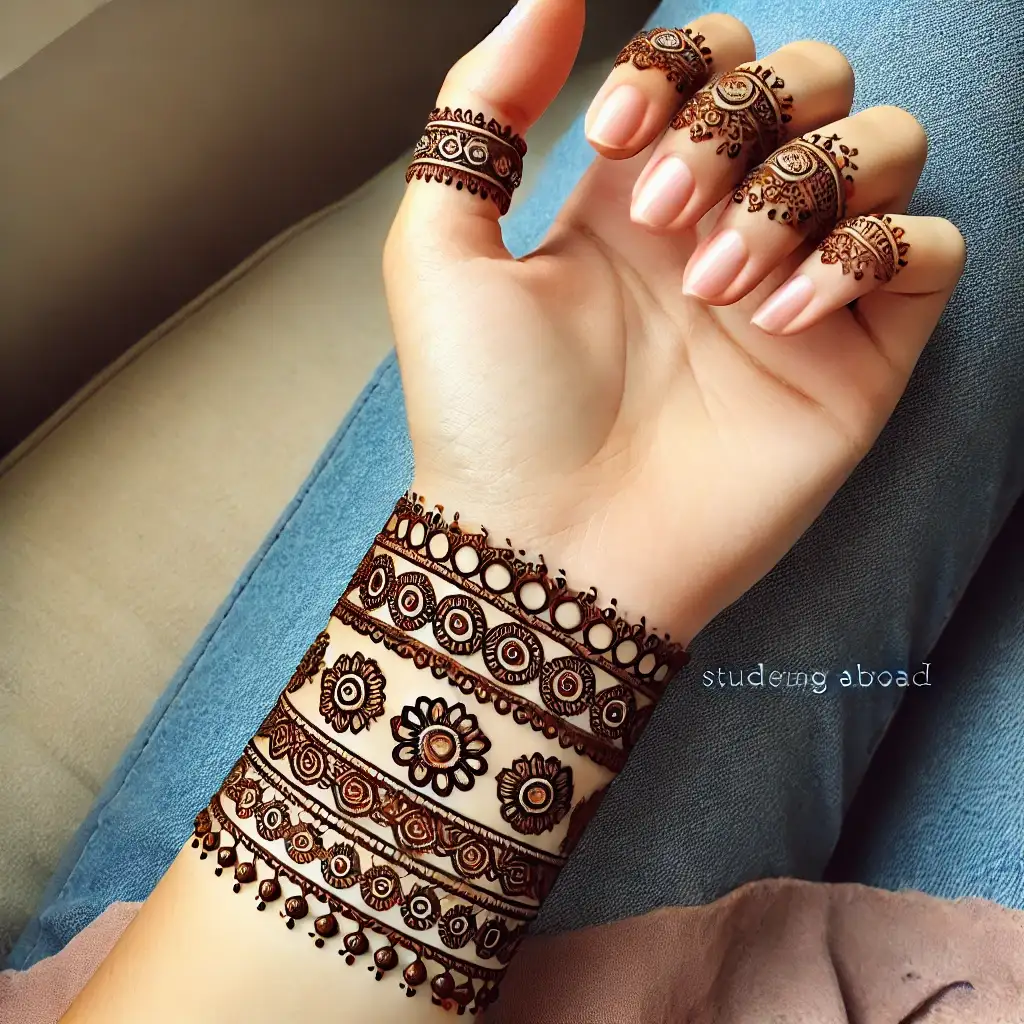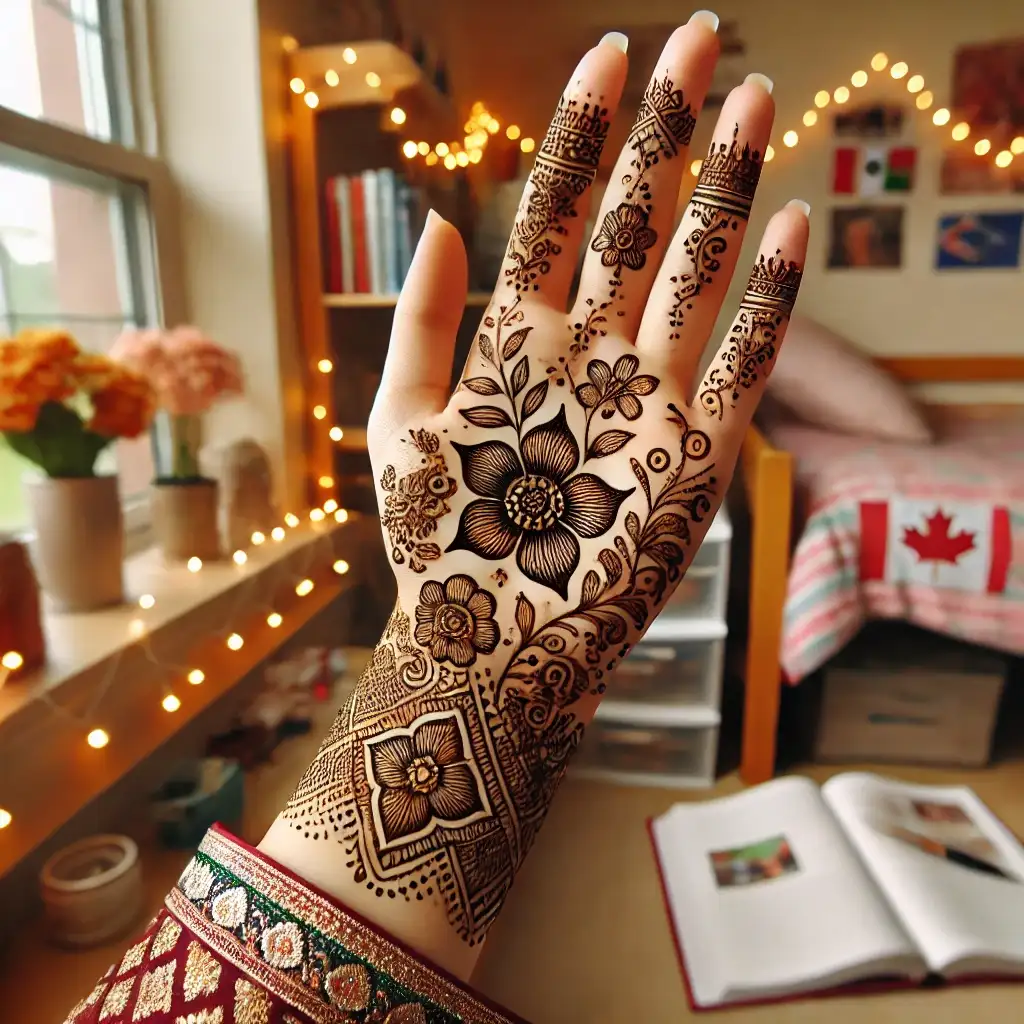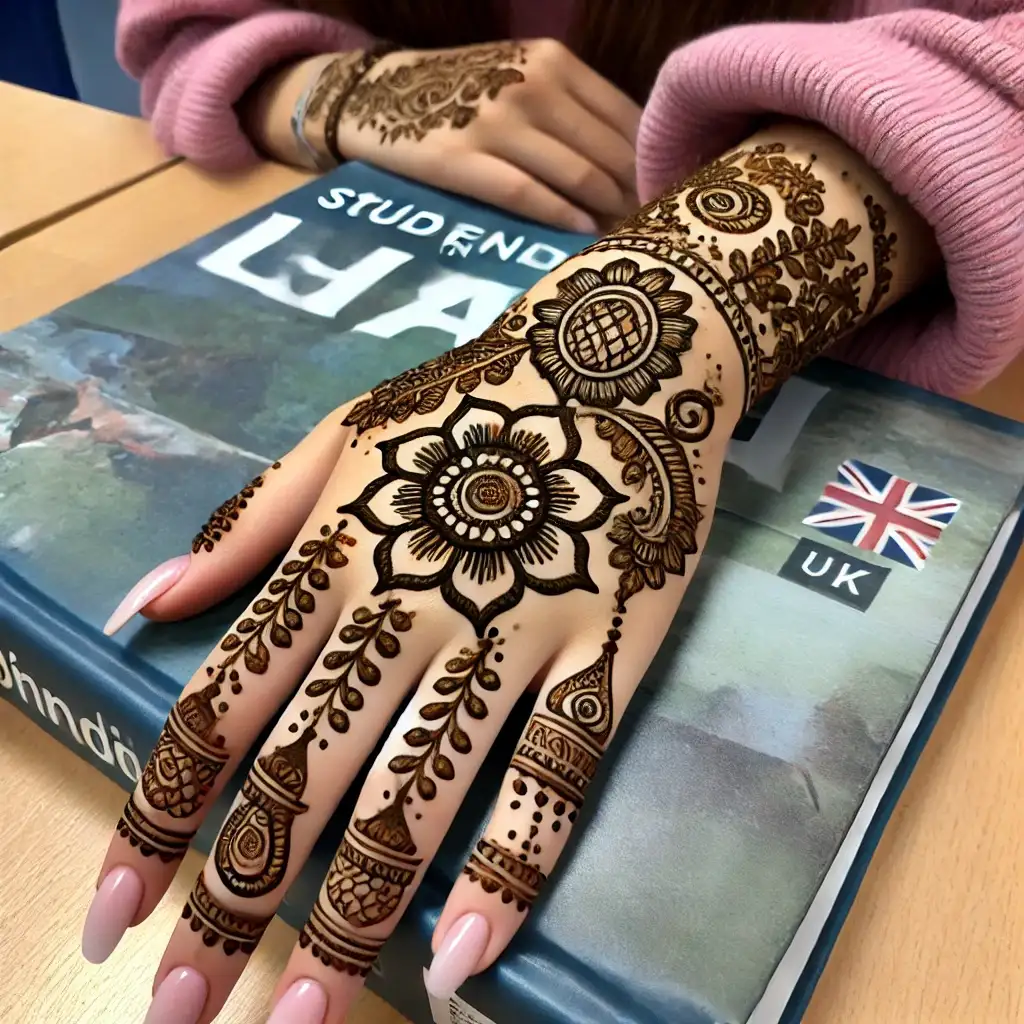Introduction
Studying abroad is a dream for many, and the UK is among the top choices for students due to its renowned universities, multicultural atmosphere, and abundant academic opportunities. For international students from countries like India and Pakistan, moving abroad doesn’t mean leaving culture behind. Bringing along traditions, like applying Mehndi for festivals and personal celebrations, helps students feel connected to home. This guide offers key insights into obtaining a UK study visa and celebrates keeping cultural practices like Mehndi alive while studying abroad.
Why Choose the UK for Higher Studies?
The UK is home to prestigious universities like Oxford, Cambridge, and Imperial College London. Students come to the UK not only for quality education but to engage in research, international internships, and a truly multicultural society.

For South Asian students, the UK offers a welcoming environment where cultural practices are celebrated. It’s easy to carry on traditions like Mehndi for cultural festivals, special occasions, and even casual gatherings with friends.
Types of UK Study Visas
To study in the UK, international students usually apply for a Tier 4 (General) Student Visa, also known as a Student Route Visa. Here’s a quick look at UK study visas:
- Short-term Study Visa: Ideal for courses under six months, like language or short academic programs.
- Tier 4 (General) Student Visa / Student Route Visa: For courses longer than six months, covering full undergraduate, postgraduate, and doctoral programs.

Note: If you plan to stay in the UK for a year or more, the Student Route Visa is essential. It allows part-time work during the term and full-time work during holidays, helping students support themselves.
Step-by-Step Guide to Applying for a Study Visa
Applying for a UK study visa may seem daunting, but these steps make it easier:
- Step 1: Confirmation of Acceptance for Studies (CAS)
Receive an offer from a UK university. Your CAS letter from the university is crucial for your visa application. - Step 2: Prepare Required Documents Essential documents include:
- Passport
- CAS letter
- Proof of financial support
- English proficiency proof (e.g., IELTS score)
- Tuberculosis test results (for some countries)
- Step 3: Submit Your Application Online Complete the form on the UK government’s official website, being thorough to avoid delays.
- Step 4: Pay the Visa Fee and Health Surcharge The visa fee is about £348, plus the Immigration Health Surcharge (IHS) for healthcare.
- Step 5: Attend the Biometric Appointment At your local visa center, submit fingerprints and a photograph.
- Step 6: Wait for Your Visa Decision Processing takes about 3-6 weeks. Track your application and have all documents ready for arrival in the UK.
UK Study Visa Requirements
International students must meet these requirements:
- Proof of Acceptance: Your CAS letter confirms university admission.
- Financial Proof: Show funds for tuition and living expenses.
- English Language Proficiency: IELTS or TOEFL results are usually required.
- Health Requirements: A tuberculosis test may be required, depending on your country.
Staying organized will make the process smoother and help secure your visa.
Tips to Improve Study Visa Approval Chances
The UK visa process is strict, but following these tips can help:
- Complete Documentation: Ensure all documents are correct and complete. Missing or incorrect documents are common rejection reasons.
- Show Genuine Intent: Clearly explain your study goals, career plans, and reasons for choosing the UK.
- Financial Proof: Your financial documents should meet UK requirements.
- Highlight Academics: Emphasize your academic achievements and future goals.
Cultural Traditions for International Students: Mehndi in the UK
Moving to the UK doesn’t mean leaving culture behind. For many South Asian students, applying Mehndi (henna) brings comfort and reminds them of home. Mehndi is common for festivals, weddings, and personal milestones, helping students celebrate their identity.
Mehndi and Celebrations in the UK
The UK is a multicultural society that values diverse traditions. Events like Diwali, Eid, and even Christmas gatherings are ideal occasions for Mehndi. Students often host Mehndi gatherings, bonding over henna, sharing stories, and celebrating culture together.

Popular Mehndi Designs for Students Studying Abroad
Here are some easy and beautiful Mehndi designs for students in the UK:
- Minimalist Mehndi Designs: Perfect for everyday wear with simple patterns like vines, flowers, and dots. Quick and ideal for busy students.

- Festival-Inspired Mehndi: For Diwali or Eid, choose intricate designs with traditional paisleys and floral mandalas to enhance the festive spirit.

- Modern Fusion Mehndi: A mix of traditional and modern styles, fusion Mehndi includes geometric shapes and simple lines, ideal for students who like a contemporary twist.

- Bracelet-Style Mehndi: Inspired by jewelry, this style wraps around the wrist and pairs well with both Western and traditional outfits.

- Quick Floral Patterns: Floral motifs are timeless and versatile, fitting students who prefer low-maintenance but elegant designs.

Conclusion: Balancing Studies and Culture in the UK
Studying in the UK is a unique and enriching experience. Though academic life can be demanding, staying connected to cultural roots through traditions like Mehndi brings comfort, identity, and joy to your journey abroad.
With the UK’s diverse environment, you’ll meet friends and communities that embrace all traditions. Applying Mehndi during festivals and gatherings is not just about beauty—it’s a proud expression of culture that enriches your study experience.
Final Thoughts
Whether you’re starting your study visa application or planning Mehndi designs for an upcoming event in the UK, this journey blends the best of both worlds. Studying abroad is exciting, and by bringing your traditions with you, you carry a piece of home wherever you go. Embrace culture, celebrate diversity, and let your Mehndi designs reflect your story as an international student in the UK.
